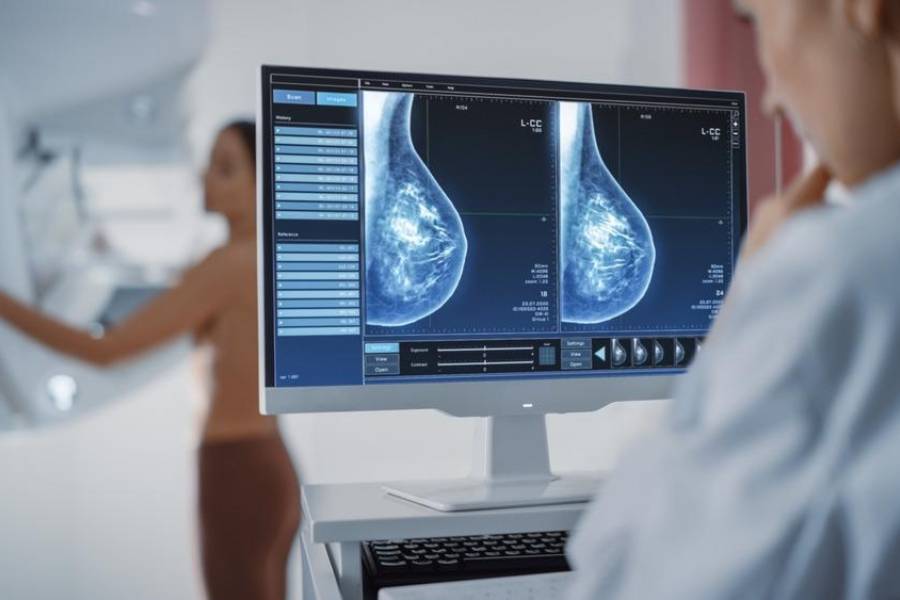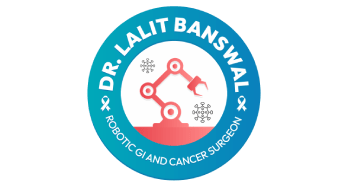Cancer Screening in Undri, Pune
Cancer screening plays a crucial role in early detection, significantly improving treatment outcomes and survival rates. Dr. Lalit Banswal, Cancer Screening in Undri Pune, offers advanced cancer screening services to find cancer in its earliest and most curable stages. Dr. Lalit Banswal, Cancer Specialist in Pune, who specializes in the diagnosis and treatment of a variety of cancers, emphasizes the importance of routine tests, particularly for high-risk individuals.
Using state-of-the-art technology and a patient-centric approach, he ensures accurate diagnosis and timely intervention. His comprehensive evaluation and precision-driven methods give patients the finest care available, whether they are screening for gastrointestinal, lung, prostate, breast, cervical, or oral cancers. By identifying cancer before symptoms appear, screening helps in reducing complications and enables more effective treatment plans.

Certain tests help find specific types of cancer before signs or symptoms appear. This is called screening. The main goals of cancer screening are to:
- Reduce the number of people who die from the disease, or prevent deaths from cancer altogether
- Reduce the number of people who develop the disease
Types of screening tests:
Each type of cancer has its screening tests. Some types of cancer currently do not have an effective screening method. Developing new cancer screening tests is an area of active research.
Breast cancer:
- Mammography:
Mammography is a type of X-ray specifically designed to view the breast. The images produced by mammography, called mammograms, can help detect tumors or irregularities in the breast even before symptoms appear. It is the most common and reliable breast cancer screening test in Pune for early detection. - Clinical Breast Examination:
A medical professional carefully examines the breasts for changes in size, shape, or texture. The doctor also checks for any lumps or changes in the skin or nipples that could indicate early signs of breast cancer. - Breast Self-Examination:
Every woman is encouraged to perform self-examinations regularly. By looking and feeling for any unusual changes, lumps, or pain in the breasts, early signs can be detected. If any changes are noticed, consult Dr. Lalit Banswal, the best cancer specialist in Pune, for further evaluation. - Magnetic Resonance Imaging (MRI):
MRI is not regularly used for screening but can be useful for women at higher risk of breast cancer, those with dense breasts, or if a lump is detected during other examinations. It provides detailed imaging and supports accurate diagnosis at an early stage.
Cervical cancer:
- Human papillomavirus (HPV) testing. Cells are scraped from the outside of a woman’s cervix. These cells are tested for specific strains of HPV. Some strains of HPV are more strongly linked to an increased risk of cervical cancer. This test may be done alone or combined with a Pap test (see below). An HPV test may also be done on a sample of cells from a woman’s vagina that she can collect herself.
- Pap test. This test also uses cells from the outside of a woman’s cervix. A pathologist then identifies any precancerous or cancerous cells. A Pap test may be combined with HPV testing.
Colorectal cancer:
- Colonoscopy. During this procedure, the doctor inserts a flexible, lighted tube called a colonoscope into the rectum. The doctor can check the entire colon for polyps or cancer.
- Sigmoidoscopy. The doctor uses a flexible, lighted tube called a sigmoidoscope to check the lower colon for polyps and cancer. The doctor cannot check the upper part of the colon with this test.
- Fecal occult blood test (FOBT). This test finds blood in the feces, or stool, which can be a sign of polyps or cancer. There are two types of FOBT: guaiac and immunochemical.
- Double-contrast barium enema. This is an x-ray of the colon and rectum. The barium enema helps the outline of the colon and rectum stand out on the x-rays. Doctors use this test to screen people who cannot have a colonoscopy.
- Stool DNA tests. This test analyzes DNA from a person’s stool sample to look for cancer. It uses DNA changes found in polyps and cancers to help a doctor decide if a colonoscopy is needed.
Head and neck cancers:
- General health screening exam. The doctor looks in the nose, mouth, and throat for abnormalities and feels for lumps in the neck. Regular dental check-ups are also important to screen for head and neck cancers.
Lung cancer:
- Low-dose helical or spiral computed tomography (CT or CAT) scan. A CT scan takes x-rays of the inside of the body from different angles. A computer then combines these images into a detailed, 3-dimensional image that shows any abnormalities or tumors.
Prostate cancer:
- Digital rectal examination (DRE). A DRE is a test in which the doctor inserts a gloved lubricated finger into a man’s rectum and feels the surface of the prostate for any irregularities.
- Prostate-specific antigen (PSA) test. This blood test measures the level of a substance called PSA. PSA is usually found at higher-than-normal levels in men with prostate cancer. But a high PSA level may also be a sign of conditions that are not cancerous.
Skin cancer:
- Complete skin exam. A doctor checks the skin for signs of skin cancer.
- Skin self-examination. People examine their entire body in a mirror for signs of skin cancer. It often helps to have another person check the scalp and back of the neck.
- Dermoscopy. A doctor uses a handheld device to evaluate the size, shape, and pigmentation patterns of skin lesions. Dermoscopy is usually used for the early detection of melanoma.
Risks of screening:
Screening tests can help doctors find cancer at an earlier, more treatable stage, improving survival and recovery rates. However, like any medical procedure, cancer screening test in India also has certain limitations and risks that should be understood before testing. These include:
Overdiagnosis:
Sometimes, screening tests may detect slow-growing cancers that would not have caused any harm during a person’s lifetime. This may lead to unnecessary treatments that can be painful, stressful, or expensive.
False Positives:
A cancer screening test in India may occasionally suggest that a person has cancer when they do not. Such false results can lead to emotional distress and further invasive testing.
Increased Testing:
Due to overdiagnosis or false positives, doctors might recommend extra tests that are not always needed. These additional tests can be physically invasive, costly, and cause unnecessary anxiety.
False Reassurance:
In some cases, a screening test might show that a person does not have cancer when they actually do. This false reassurance can delay proper diagnosis and timely treatment.
Why Choose Dr. Lalit Banswal for Cancer Screening in Pune:
1. Expertise in Early Cancer Detection:
With over 15 years of experience in oncology, Dr. Lalit Banswal is known for his excellence in early cancer detection and diagnosis. His deep understanding of cancer types ensures accurate results in every cancer screening test in Pune.
2. Advanced Screening Technology:
At Sai Vedant Multi Speciality Hospital, Undri, Pune, cancer screening tests are performed using state-of-the-art diagnostic tools and advanced imaging systems. These technologies help detect early-stage cancers with high precision and reliability.
3. Comprehensive Screening for All Cancer Types:
Dr. Lalit Banswal provides a wide range of cancer screening tests in Pune for breast, cervical, lung, oral, gastrointestinal, prostate, and skin cancers — all under one roof. This ensures complete preventive care and peace of mind for every patient.
4. Personalized Care and Guidance:
Each patient receives a customized cancer screening test plan based on their medical history, lifestyle, and genetic factors. Dr. Banswal believes in offering clarity, comfort, and compassionate care at every step.
5. Trusted Cancer Specialist in Pune:
Recognized as one of the most trusted names for cancer screening in Pune, Dr. Lalit Banswal is known for his patient-centric approach and ethical medical practice. His goal is to promote prevention, early detection, and overall wellness.
Take a Step Towards Early Detection:
If you are looking for a reliable cancer screening test Pune, visit Dr. Lalit Banswal at Sai Vedant Multi Speciality Hospital, Undri. Early detection saves lives — book your screening today and take charge of your health.
Book a Consultation For Cancer Sreening In Pune
Don’t wait for symptoms to appear. If you’re looking for reliable cancer screening in Pune, including areas like Undri, Hadapsar, and Kondhwa, consult Dr. Lalit Banswal at Sai Vedant Multi Speciality Hospital — the best cancer hospital for cancer screening in Pune.
With his expertise in early detection and prevention, Dr. Lalit Banswal ensures timely diagnosis and complete peace of mind for every patient. Book an appointment today or call 9158050180 to schedule your cancer screening with Dr. Lalit Banswal and take a proactive step towards better health.
